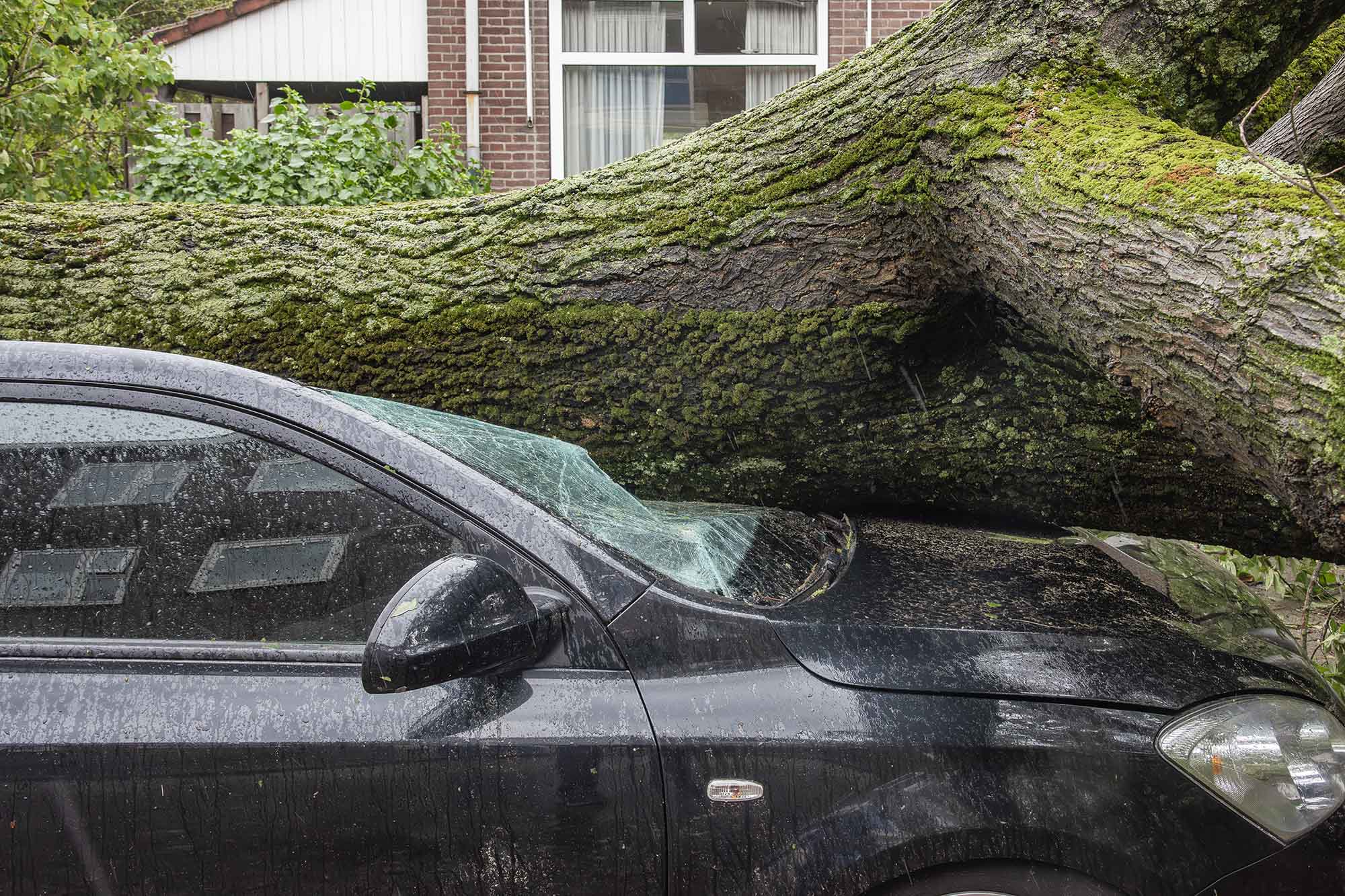What Happens if Your Neighbor's Tree Falls on Your Car
Who is out of pocket when an act of God damages your vehicle?
 Getty Images
Getty Images
Let's say a tree falls on a car parked on your property, and its stump is in a neighbor's yard. You're likely going to be curious about whose insurance company is going to cover the damage. Fortunately, it turns out that dealing with tree damage is often simpler than it may seem — as long as you have the right coverage.
Who Is Responsible When a Tree Falls on Your Car
The word responsibility is an unusual one when discussing tree damage. Unless someone has purposely cut the tree down, insurance companies won't usually assign any blame.
While it might seem as though the neighbor's homeowner's policy would be responsible for covering tree damage to a vehicle, this is generally not the case. The neighbor isn't likely going to be on the hook for one of their trees damaging your automobile. Even if you're parked on your property, your home insurance coverage may not apply either.
Generally, the incident will fall under the concept of "force majeure," or "act of God," which are terms the insurance industry uses to describe events out of human control.
From an insurance perspective, this means your vehicle coverage should pay for any necessary repairs.
The Type of Insurance That Covers Tree Damage
Damage caused by a falling tree — or natural hazards such as hail, wind, rain, or flooding — is generally covered by a comprehensive insurance policy.
Comprehensive insurance is designed to protect a vehicle from any and all perils that don't involve a collision with another motorist or a stationary object, which means things such as vandalism, fire, theft, and even animal-related damage can be covered.
Possible Exceptions in the Case of Tree Damage
There are a few mitigating factors that could change the equation in terms of who is responsible if a neighbor's tree falls on your car.
For example, if you have documented proof your neighbors knew the tree was dangerous or in poor condition, you may be able to shift the legal responsibility. However, this may be difficult.
Now, if a company was pruning trees on your neighbor's property and workers accidentally knocked a tree over onto your vehicle, your comprehensive insurance doesn't apply. In this case, the contractor's insurance policy should cover the damages, as the workers directly caused the tree to fall. Force majeure would not apply.
Things may also be different if your vehicle is in motion when the tree damage occurs. If your neighbor's tree falls into the road immediately in front of you while you are driving and you can't avoid it, your insurance company will likely apply the provisions of your collision policy — not your comprehensive policy.
In this case, the responsibility is assumed to be yours, as drivers are expected to make efforts to avoid running into objects.
Written by humans.
Edited by humans.
 Benjamin Hunting
Benjamin HuntingBenjamin Hunting is a writer and podcast host who contributes to a number of newspapers, automotive magazines, and online publications. More than a decade into his career, he enjoys keeping the shiny side up during track days and always has one too many classic vehicle projects partially disassembled in his garage at any given time. Remember, if it's not leaking, it's probably empty.
Related articles
View more related articles